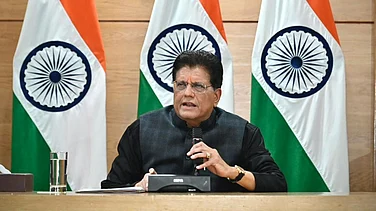Markets watchdog SEBI on Wednesday decided to allow private equity funds to sponsor mutual funds and do away with permanent board seats for individuals at listed companies, as well as proposed a regulatory framework for ESG disclosures and norms to curb fraud by stock brokers.
Unveiling a raft of measures aimed at strengthening the country's securities market and enhancing the corporate governance ecosystem, the regulator also announced a fund-blocking facility for secondary market investors and a stricter regulatory framework for Alternative Investment Funds (AIFs). The proposals were cleared by the SEBI board at its meeting here.
In efforts to bolster the disclosure framework for listed entities, SEBI said there will be a "stricter timeline for disclosure of material events/information for which decision has been taken in the meeting of the board of directors (within 30 minutes) and which are emanating from within the listed entity (within 12 hours)".
SEBI will now allow private equity funds to sponsor a mutual fund house as they can bring in strategic guidance and talent to fuel the industry's growth. Further, 'Self Sponsored Asset Management Companies' will be permitted to continue the mutual fund business, subject to certain conditions. The move would give the original sponsor flexibility to voluntarily disassociate itself from the MF without needing to induct a new and eligible sponsor.
In a significant move, a Corporate Debt Market Development Fund (CDMDF) will be set up in the form of an AIF to act as a backstop facility for the purchase of investment-grade corporate debt securities during times of stress. After the board meeting, SEBI Chairperson Madhabi Puri Buch said the proposed CDMDF will have an initial corpus of Rs 3,000 crore contributed by mutual funds.
The government has allowed a 10x leverage on this with the full guarantee by the credit guarantee corporation. This takes the available fund to Rs 33,000 crore. Out of the AMCs' contribution, 10 per cent will come from their equity and the rest 90 per cent will be from their beneficiary schemes, she told reporters. Further, the regulator has approved a framework to enhance the role and accountability of the mutual fund trustees in a move to safeguard unitholders' interests.
A new framework will be put in place for ESG (Environment, Social and Governance) disclosures by listed entities, ESG ratings in the securities market and ESG investing by mutual funds to facilitate a balance between transparency, simplification and ease of doing business in an evolving domain. Also, the regulator has decided to come up with norms for ESG Rating Providers (ERPs) amid the growing importance of their role in making investment decisions.
To promote the ease of doing business, SEBI also approved the introduction of the concept of general information and key information document to do away with multiple filings by issuers for non-convertible securities and commercial papers, according to a release. Among others, SEBI will put in place a framework for the Application Supported by Blocked Amount (ASBA) facility for investors in secondary market trading, similar to the existing system for IPO investors.
Through the proposed facility, which would be optional for investors as well as stock brokers, SEBI aims to bring efficiency to the secondary market ecosystem by allowing usage of the same blocked amount towards margin and settlement obligations. This would result in lower working capital requirements for the members. Amendments will be made to the stock brokers' regulations to have a formal mechanism for the prevention and detection of fraud or market abuse by stock brokers.
Also, the regulator has decided to do away with the practice of individuals having permanent seats on boards of listed companies. With respect to AIFs, measures will be put in place to have an independent valuation of their investments and introduce a comprehensive certification requirement for key investment teams of AIF managers.
To improve governance and transparency to investors with respect to transactions involving conflict of interest, the regulator also approved that there should be a mandate for obtaining approval of 75 per cent of investors by value for buying or selling of investments potentially involving conflict of interest.
The proposals pertaining to the valuation of investments, dematerialisation of units, certification requirement for key employees of an investment manager, transactions with associates and option to unliquidated investments to a new scheme of AIFs were approved by the SEBI's board.


























.jpg?w=200&auto=format%2Ccompress&fit=max)




